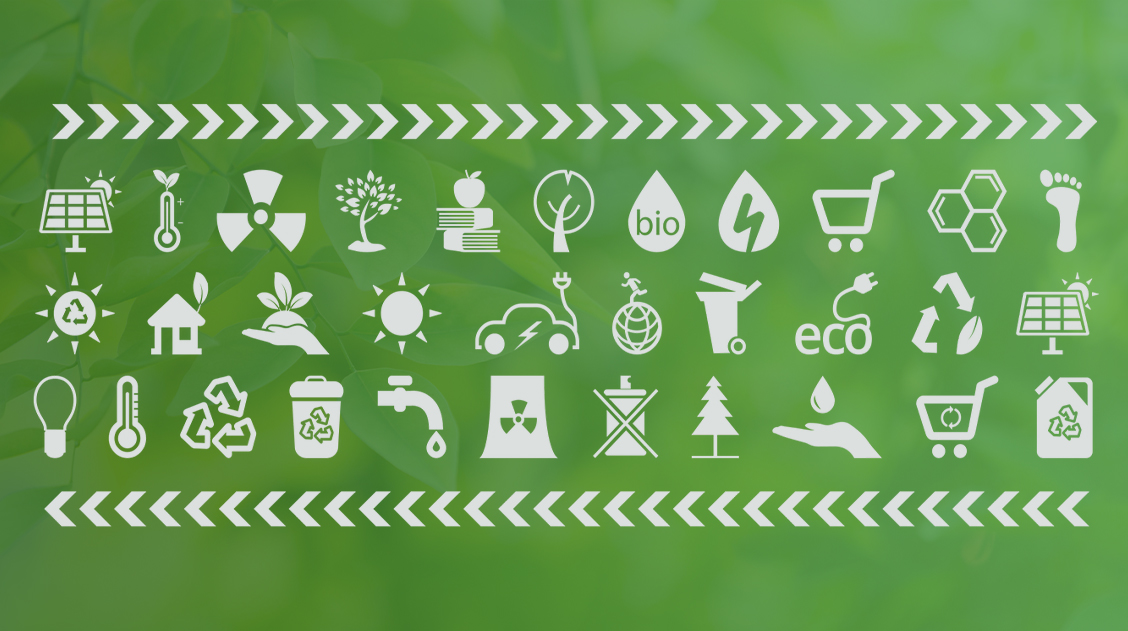
Greenwashing—A Modern-Day Minefield
Contrary to what the name might suggest, greenwashing is not just using the eco setting on your washing machine, but when a company’s marketing misleads consumers into believing a company is more environmentally friendly than it is.
As we work to reduce the impact our consumption has on the planet, more and more companies, in recognition of this, are taking steps to try to lessen the environmental impact of their products and practices. Others, however, use performative strategies that make it appear to the consumer that they have taken responsible environmental action, when in actuality, this is not the case, leading the consumer into a false sense of ethical and ecological security. An example of this is an airline labelling themselves as carbon-neutral, when this accreditation only considers on-the-ground operations and not actual flights, which constitute a huge amount of CO2 emissions.
Bluewashing
A term that has also seen a rise in usage is bluewashing, by which a corporation advocates for its social responsibility without evidence to back this up. The ubiquity of social media makes this dangerously easy. In Greenwashing and Bluewashing in Black Friday-Related Sustainable Fashion Marketing on Instagram in Sustainability, the authors propose a research-based model of nine greenwashing/bluewashing strategies based on Black Friday Instagram ads and how these appeal to different types of consumers according to their attitudes towards sustainability. The authors found that even amongst participants who stated that they could recognise green/bluewashing advertisements and were highly sceptical of supposed sustainability practices, positive evaluations of the brands that were found in the study to be guilty of green and/or bluewashing strategies were reported.
Green branding strategies
Green branding strategies include the use of buzzwords, e.g., organic, natural, eco, and green, which we tend to associate with sustainability. Imagery is another tactic that can mislead the consumer: pictures of nature, free-range animals, etc.—if a product’s packaging depicted landfill or polluted rivers, perhaps we would be less inclined to buy it. One would like to think that seeing green certifications on products would guarantee environmentally friendly processes, but some certifying bodies only require a promise of good practices and a yearly fee from corporations in exchange for the right to display the accreditation on their products, website, etc.
This makes it difficult for us as consumers to separate genuine corporate social responsibility and ethical policies from mere marketing ploys and blinds us to what’s actually going on behind the scenes in terms of manufacturing, distribution, waste disposal, and working conditions. The fashion industry is a particularly rampant culprit of this, as exemplified in Regulation for Promoting Sustainable, Fair and Circular Fashion in Sustainability.
It has also been found that, in 2020, the vast majority (>70%) of the largest corporate carbon emitters globally did not specify the effects of climate risks in their financial reports.
Consumer awareness
So, there are a few things to consider here before making a decision on who to buy from. For example, a product labelled “80% recycled plastic” may seem great, but was the plastic use actually necessary in the first place? A t-shirt ambiguously labelled as “made with organic cotton” could actually only contain 0.5% organic material. In the same vein, “organically produced cotton” does not equate to ethically produced cotton. Additionally, is the product in and of itself fundamentally sustainable (e.g., a single-use plastic drink bottle)? When looking into a company’s background, it may be useful to look into who it is owned by—large corporations often buy smaller companies as a guise to entice customers who may not have bought from them originally due to their reputation regarding, for example, negative environmental practices or worker exploitation.
Further reading from MDPI’s Sustainability journal includes:
- Twalk Your Talk: On the (Non)-Formative Influence of Corporate Social Responsibility Communication on Supply Chain Sustainability Measures;
- Is the “Green Washing” Effect Stronger than Real Scientific Knowledge? Are We Able to Transmit Formal Knowledge in the Face of Marketing Campaigns?;
- How Green Trust, Consumer Brand Engagement and Green Word-of-Mouth Mediate Purchasing Intentions.
Learn more with Open Access
We believe that research should be made available for all, free of cost or access barriers. If you found this topic interesting, under our open access policy, you can visit MDPI.com and freely search scientific research papers linked to this topic. All articles are free to access and download. If you want to learn more about greenwashing and how researchers, read our article on the award-winning research Prof Tom Lyons and his work on greenwashing and corporate social responsibility.











There are other studies too that show aspersions on big firms. Yours is a clear pointer to the dishonest means adopted. This way, humanity is doomed for extinction.
Hi Salil, thanks for the comment. Glad you enjoyed the article.